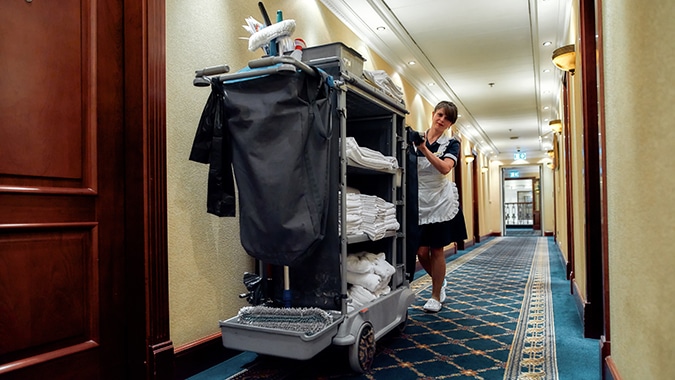A recent survey confirms what many businesses already know: finding skilled workers isn’t getting any easier. According to a survey a survey of human resource leaders by Wiley Education Services and Future Workplace, the skills gap grew by 12% since last year.
The finding comes from the second annual report, “Closing the Skills Gap 2019,” which was released today. According to the study, 64% of the 600 HR leaders surveyed said there is a skills gap in their company, up from 52% in the 2018 report. This year, 44 percent of HR leaders reported it was more difficult to fill their skills gap than it was last year, and 42 percent said the skills gap was making their company less efficient.
“The skills gap is growing, becoming a larger and more serious drag on business efficiency,” said Jeremy Walsh, VP of Enterprise Learning Solutions at Wiley Education Services. “Our research shows that, for the second year in a row, companies are grasping for solutions to improve their ability to find basic talent needs and one thing that is becoming very clear, companies that are willing to build talent versus simply buying talent will be the winners over the next few years.”
Other significant findings of the report include:
- Pace of change is driving gap growth. Increasing changes in technology and required matching skills was the most often-cited cause of the skills gap (37%), followed by the lack of skilled talent capable of moving into positions with more responsibilities (31%) and lack of qualified candidates (30%).
- HR leaders increasingly say needed skills are temporary. A significant share of employers (40%) estimate that a skill is usable for four years or less. Fast-paced obsolescence escalates the need for employers to hire or upskill workers when gaps form.
- A college degree isn’t the only pathway. While 68% of employers say a degree is used to validate hard skills, nearly all (90%) employers said they would hire a candidate that doesn’t have a 4-year college degree.
- Tuition reimbursement is popular. Over half (52%) of employers said that they use a tuition reimbursement program for upskilling and a significant majority (88%) cover at least some of the cost of upskilling for employees.
- Companies say they need to invest in workforce skills, but many don’t. Although 68% of HR leaders say their company very often or always communicates the value of upskilling, less than half of companies (48%) spend more than $500 per year per employee on upskilling or continuing education.
- Employers are working more with schools. Nearly two-thirds of employers (64%) say their organization has collaborated with schools to make curriculum more responsive to workforce needs in the past three years, an increase of 14 percentage points since 2018.
- Hiring practices vary with respect to offering jobs to candidates with certain demographic factors. More than six in ten (61%) employers often offer jobs to military veterans, nearly two-thirds of employers have hired people considered retired or unemployed, nearly half (46%) often offer roles to non-Americans.
- Employers increasingly prioritize solutions such as AI and outsourcing over upskilling. Forty percent say they prefer to invest in AI than upskilling, an increase of 11 percent over last year. And nearly half (47%) prefer to hire gig workers instead of full-time employees, a jump of nine percent over 2018.
“Now is the time for companies to take concrete steps to address this issue before it further impacts business outcomes,” said Jeanne Meister, Founding Partner, Future Workplace. “Companies should not choose between investing in artificial intelligence or upskilling employees, they need to do both! No industry will be immune to the shortage of skilled labor needed to remain competitive today.”
“The skills gap continues to get wider with more than seven million unfilled jobs in America. Companies can’t find the right talent, with the right skills at the right time and it’s preventing them from growth,” said Dan Schawbel, Research Director at Future Workplace. “As a result, this study concludes that while they might have had a singular focus on a specific type of candidate in the past, that’s changed out of necessity. They are open to hiring candidates, such as retirees and veterans, because it expands their talent pool.”
Wiley Education Services is a division of Wiley that provides tailored services and technology solutions for university and enterprise partners. Future Workplace is an HR advisory and research firm preparing leaders for disruptions in recruiting.
